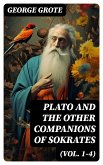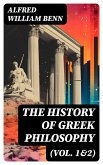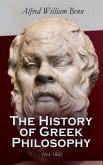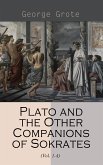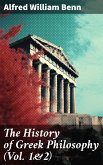Yale Classics (Vol. 1) is a comprehensive anthology that encapsulates the profound depth and breadth of ancient Greek literature. This collection traverses a diverse array of styles, from philosophical treatises and epic poetry to incisive dramas and lyrical endeavors, providing a holistic view of the intellectual and artistic achievements of the classical era. The volume includes standout excerpts such as the dialogic intricacies of Platonic thought and the dramatic tensions of Greek tragedies, all serving as timeless reflections on human nature and societal constructs. The anthology brings together the voices of some of antiquity's most celebrated authors, including Aristotle, Euripides, Homer, and Sappho. Each of these luminaries contributes a distinct perspective that aligns with and expands upon the broader cultural and literary movements of their time. The collection weaves a rich tapestry, representing the philosophical inquiries, political discourses, and the artistic advancements that have shaped Western civilization. The diverse backgrounds of these authors bring varied interpretations, enriching the reader's understanding of Greek thought and its enduring influence across centuries. Yale Classics (Vol. 1) is an indispensable resource for anyone seeking to explore the vast expanse of Greek literature and its variegated heritage. It invites readers into a dialogue with the past, offering insights and reflections that remain highly relevant today. Delve into this volume to appreciate the multiplicity of perspectives it offers and to foster an engaging understanding of the themes and styles that underpin Western literary traditions. This anthology offers an unparalleled opportunity for educational enrichment, intellectual engagement, and an appreciation of historical narratives in a single revered collection.
Dieser Download kann aus rechtlichen Gründen nur mit Rechnungsadresse in A, B, BG, CY, CZ, D, DK, EW, E, FIN, F, GR, H, IRL, I, LT, L, LR, M, NL, PL, P, R, S, SLO, SK ausgeliefert werden.





